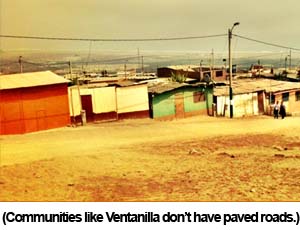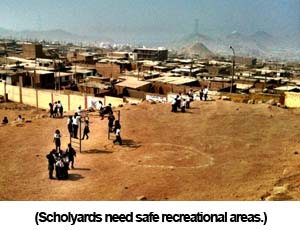I hope you all have had a wonderful start to the new year. I returned to Lima, Peru soon after our annual meeting with Edify in San Diego, California where our central office is located. Peru is in the middle of summer and it’s great weather (so strange to be on this side of the equator!). We’re really excited to start doing our first microloans here in Lima in the next few weeks because schools are out for the summer and are looking to expand their operations. Schools look for financing for their construction projects during this time period and often find loans from banks that charge them very high interest rates. For us, it’s an excellent opportunity to connect with them about our small business loans and business training, and to share with them our vision for education in Peru. -Aaron
- Download this email as a pdf: Aaron Roth – Jan. 2014 Update.pdf
- Edify worldwide – www.Edify.org
- Archive: AaronRoth.net – Monthly Newsletters
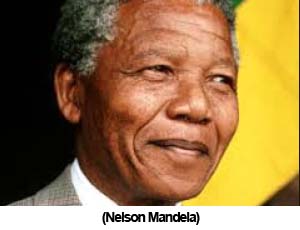
“Education is the most powerful weapon we can use to change the world.”
– Nelson Mandela
I had the opportunity to reconnect with my colleagues in Edify early this January in San Diego. Because we work in six countries (seven, if you count our own country) we see each other but once a year. Most meetings are carried out via Skype, and the preferred method of communication is via email. Yet, we are all drawn to the organization for the same reason. As I talked with each colleague I realized that we really do believe in our mission:
To improve and to expand sustainable, affordable, Christ-centered education in the developing world.
But why do we believe this, I thought, as we gathered around the table. I know that we use language like this all the time when we talk about improving the economic outlook of developing countries, and how we can help people out of poverty. Do we really believe that education can make a difference in this way and why does it matter that we bring Christ into the initiative of building better schools?
One night, we left the meeting rooms and went to a local restaurant to have dinner and to relax from the previous days’ meetings. I looked around the table and was amazed to see individuals from so many countries. We had Ghanaians, an Ethiopian, a Ugandan who now lives in Rwanda, a Dominican and Americans from just about every corner of our country, certainly every coast. I know this sounds like I’m about to tell a joke, but nope, that night we simply traded stories.
There’s one story in particular that I wanted to highlight. It’s the story of my colleague Godfrey, the Ugandan raised in Rwanda. I’ll summarize it now from my own notes and recollection, which will be a sneak-peek to the full story we’ll plan to release later in the year.
Earlier that day, in the morning, Godfrey shared with us his personal story as a devotional using Psalm 23.
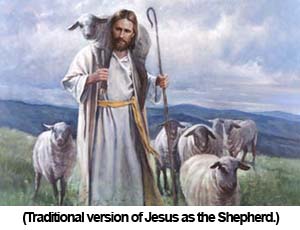 Psalm 23
Psalm 23
“The Lord is my shepherd, I lack nothing.
He makes me lie down in green pastures,
he leads me beside quiet waters,
he refreshes my soul.”
(Biblegateway link: Psalm 23)
Godfrey started off by saying, (and I’ll paraphrase most of this that comes next)
“Now I’m not sure many of you have had an experience being a shepherd, (Godfrey is quite clever and quick-witted.) but I do.
My brother and I were shepherds growing up. We cared for many animals. And I love the stories of Jesus in the New Testament where he talks about being a shepherd, because I know what that is like. I especially like the part where Jesus uses an example of the shepherd who finds the young sheep and puts it 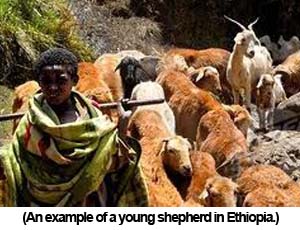 across his shoulders. I remember seeing my brother pick up a sheep and place it across his shoulders when it was weak. It is a true thing. Shepherds do that. . . . I love that story, because I have been carried by Jesus like that.”
across his shoulders. I remember seeing my brother pick up a sheep and place it across his shoulders when it was weak. It is a true thing. Shepherds do that. . . . I love that story, because I have been carried by Jesus like that.”
“When I was very little, I was one of the few people I knew who was born in a hospital in Uganda. My father had a very good job at a financial institution, and we lived well. But when I was very young, my father lost his job and life changed dramatically for us. We had to move out from the city to the rural area.
There were few jobs. We were very poor. We tended animals because that was the only way we could make money. These animals were so valuable. They were our assets. They were worth more than our house. Once, when I was very sick, we couldn’t go to hospital, because we didn’t have the money, and my father would not sell an animal for the money.
“I did well in grade school. In fact, I did so well that I earned the highest marks on my national tests that I could attend an excellent private Christian school. The only problem was that we did not have money to send me there. I was so mad at my father for not selling an animal to pay for my schooling. I was devastated. I prayed to the Lord to help me study at this school. I tried everything I could to find a way to pay for the entrance fees and tuition. I spoke with 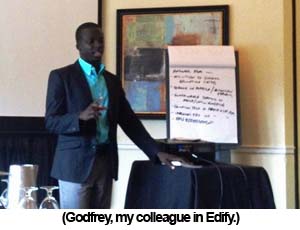 the director about a scholarship and he told me that the only way to receive a scholarship was to repeat certain grades of middle school and perform well so that I could attend high school. I was so disappointed, but I knew that this was the Lord’s plan for me and I should accept it.
the director about a scholarship and he told me that the only way to receive a scholarship was to repeat certain grades of middle school and perform well so that I could attend high school. I was so disappointed, but I knew that this was the Lord’s plan for me and I should accept it.
“I repeated three grades so that I could attend this school. I was so ashamed to be seen by my classmates who were in the grades above me. They tease me, “Godfrey, if you are so smart, why are you three grades below us?” I kept praying to make it through because I knew that this was my way to a good education.
“Jesus carried me through this period, and I made it to high school, and I did well. I did so well that I got to go to University. I studied business and I got a wonderful job after University. My life was fully changed. I never stopped praying to my Lord, I never stopped being thankful for his faithfulness to me.
“The reason that I am standing here today is because I am a product of education. I am so grateful to be standing here before you. Grateful to the Lord for all he has done in my life, and grateful to Jesus, for his work and his life, and for his gift of salvation.”
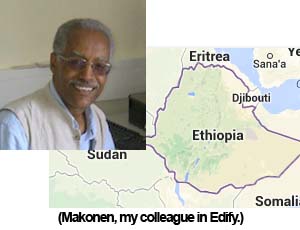
[What’s equally amazing is that our Chief Transformation Officer and Vice President of Program Assessment, Mokonen Getu, was once a shepherd boy in Ethiopa. He has an inspirational story of his long journey from the pastures of Ethiopia to the halls of higher education. He got his PhD in International Development from the University of Stockholm, Sweden. His amazing journey is detailed in his autobiography. (You can read more about him in Edify’s 2013 annual report.)]
———-
I am still in awe when I think about Godfrey’s story. When I hear about the valleys he walked through to make it to where he was, it makes me proud simply to know him and have him on our team in Rwanda. I told Godfrey how amazing his story was. He is very humble and approaches everything with a smile. He brushed off my compliment and said he enjoyed my presentation on Peru.
A little later on in the meeting he told us that he wants to get more involved at his church. While he does music and 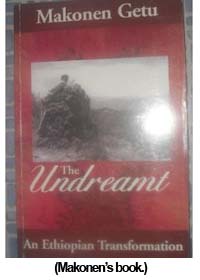 evangelization, he’d like to get back in the pulpit. (What a guy!)
evangelization, he’d like to get back in the pulpit. (What a guy!)
—
But right now, let me return back to us sitting around the multi-international table at the restaurant:
Later on in the meal Godfrey turns to me and says, “Aaron, may I ask you a question? I need your help.”
(I wondered what came next.)
“It is my first time in America and I think right now I want to order a hamburger. But we are at a fish restaurant. I think I should order fish.”
“I think that’s a good call. Do you like fish?”
“Yes, I like fish. In fact, I ate shark in Colorado. Have you eaten shark?”
“Wow, you had shark? How was it?”
“It was good. It tastes like chicken. But I don’t think I want shark right now.”
“How did you eat shark in Colorado?”
“We made a stop for Edify for two days for some meetings, and I got to visit a University.”
I tried not to laugh at the strange connection of those statements, and when he saw me smile he said,
“Yes, it was strange. I believe there are no sharks in Colorado. Nowhere close.”
We both laugh about it. I walk him through a few “American” choices. He continued later telling me that part of the reason for the stop is for him to see the university and sign up for the online MBA program at Colorado Christian University.
“It is such a great opportunity Aaron. I am so excited to start. I love education.”
. . .
Godfrey’s story and Makonen’s story are yet more reminders of why I work for Edify, and why I am excited to open the program here in Lima, Peru. Their stories are incredibly unique, yet share so many common threads with stories of adults I’ve met throughout the past three years working in Latin America. To believe there is hope, to believe that there is a God who has a plan, to believe that there was a man Jesus, the Great Shepherd who walked among us – who carries us when the burden is too great – is to know that 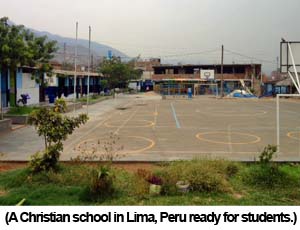 there truly is a pathway out of poverty.
there truly is a pathway out of poverty.
I know there are still millions of children here in this country of Peru who walk through valleys and are looking for a pathway up and out.
. . .
I pray that we would all see the value in education, and that we would find ways to take advantage of the opportunities that we have.
Blessings to you all,
-Aaron
aroth@edify.org
Skype: aroth.edify
Web: www.AaronRoth.net


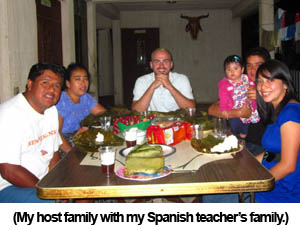 Edify worldwide –
Edify worldwide – 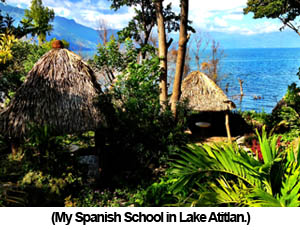 This statement was retold to me by a loan officer of a local Guatemalan Microlending Institution who was teaching rural women about the inequality of gender, and how they should value the female gender and should stand up for the rights of their little girls to attend school and seek educational and vocational opportunities. Inequality still exists in many parts of the world, not just in money or power, but in gender. Very often, when we think of poverty, it’s a description of inequality in economic class, education, or opportunity, but I’ve come to see poverty also as a lack of values or appreciation of life.
This statement was retold to me by a loan officer of a local Guatemalan Microlending Institution who was teaching rural women about the inequality of gender, and how they should value the female gender and should stand up for the rights of their little girls to attend school and seek educational and vocational opportunities. Inequality still exists in many parts of the world, not just in money or power, but in gender. Very often, when we think of poverty, it’s a description of inequality in economic class, education, or opportunity, but I’ve come to see poverty also as a lack of values or appreciation of life.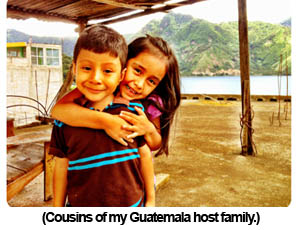 Now keep in mind, even in the tiny rural village where this training took place, culture is a behemoth that everyone can see, but very few can move on their own. It takes years to form itself, and sometimes it sets in like concrete, which means it takes years to reform or change. When any development or missional organization talks about transformation of any sort, be it economical, behavioral, or spiritual, they are entering into a long term process. I’m always hesitant to speak of rapid transformation in the work we do with microlending to schools, because when we try to improve the quality of education, and build on projects to schools, we’re talking about beginning a process for change with a diverse group of individuals who carry their own vision for the school.
Now keep in mind, even in the tiny rural village where this training took place, culture is a behemoth that everyone can see, but very few can move on their own. It takes years to form itself, and sometimes it sets in like concrete, which means it takes years to reform or change. When any development or missional organization talks about transformation of any sort, be it economical, behavioral, or spiritual, they are entering into a long term process. I’m always hesitant to speak of rapid transformation in the work we do with microlending to schools, because when we try to improve the quality of education, and build on projects to schools, we’re talking about beginning a process for change with a diverse group of individuals who carry their own vision for the school.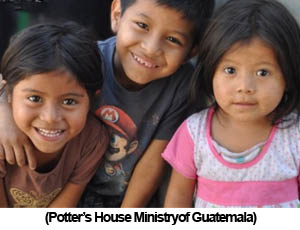 I think it’s better to say that as a development or missional organization from the States we are joining a team with a common goal. When we work together for long-term results, not just short-term projects that look good on powerpoints and photos, real transformation is possible. Real culture change is possible.
I think it’s better to say that as a development or missional organization from the States we are joining a team with a common goal. When we work together for long-term results, not just short-term projects that look good on powerpoints and photos, real transformation is possible. Real culture change is possible.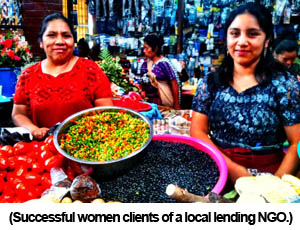 primarily with telling the students that they themselves are valuable. He elaborates:
primarily with telling the students that they themselves are valuable. He elaborates: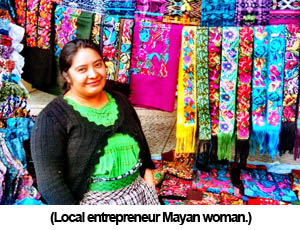 students in the school value them because they came to help, and because they stayed. They invested in the community, and the community trusts them.
students in the school value them because they came to help, and because they stayed. They invested in the community, and the community trusts them.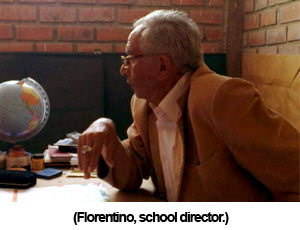 Edify worldwide –
Edify worldwide – 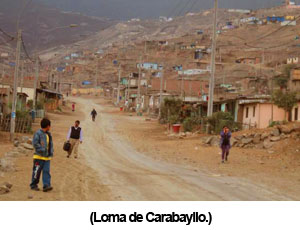
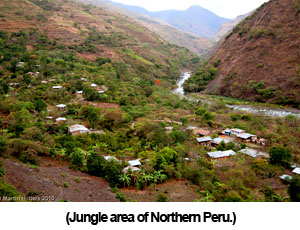 as we think of it being English and Spanish. Instead, his bilingual school was Spanish and Quechua, the native language to those who live in the rural areas and the jungle.
as we think of it being English and Spanish. Instead, his bilingual school was Spanish and Quechua, the native language to those who live in the rural areas and the jungle.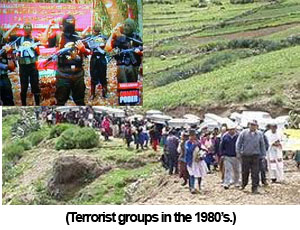 Florentino has a unique story to us, one of a true entrepreneurial bootstrapper, but his journey from the jungle to the center of Lima has become more common over the past few years. As the director of a local microfinance organization told us, “Lima is our ‘American Dream.’ To get a job and raise a family in Lima is what millions of Peruvians aspire to do.”
Florentino has a unique story to us, one of a true entrepreneurial bootstrapper, but his journey from the jungle to the center of Lima has become more common over the past few years. As the director of a local microfinance organization told us, “Lima is our ‘American Dream.’ To get a job and raise a family in Lima is what millions of Peruvians aspire to do.”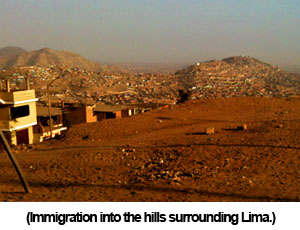 Florentino opened up his school ten years ago, more than 50 students were initially enrolled, and his staff tried to keep up with demand. He tells us that the parents wanted their kids in schools but didn’t want to pay the $8 monthly fee for a private education. Undeterred, Florentino didn’t give up, and persevered in the first few years to enroll more and more students and work with parents to pay an adequate amount so that he could staff the school.
Florentino opened up his school ten years ago, more than 50 students were initially enrolled, and his staff tried to keep up with demand. He tells us that the parents wanted their kids in schools but didn’t want to pay the $8 monthly fee for a private education. Undeterred, Florentino didn’t give up, and persevered in the first few years to enroll more and more students and work with parents to pay an adequate amount so that he could staff the school.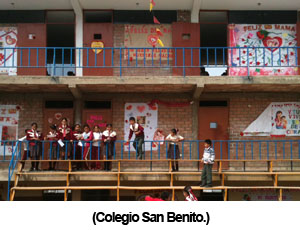 “I’m not so worried about getting to a specific number, or having another school. I want these children to have a quality education, and that means finishing the science lab. Later, I’ll continue to expand the computer room. It’s my duty to provide them with a solid education.”
“I’m not so worried about getting to a specific number, or having another school. I want these children to have a quality education, and that means finishing the science lab. Later, I’ll continue to expand the computer room. It’s my duty to provide them with a solid education.”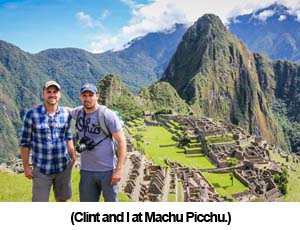 Edify worldwide –
Edify worldwide –  Clint and I, both sitting down to rest our lungs, commented on how true that observation was. Machu Picchu sits on a small mountaintop in the cradle of the behemoths surrounding it, a man-made anomaly almost eclipsed by the view of towering giants. You really have to hike up a ways to see this and appreciate the true nature of its location. We started out with the intention of reaching the Machu Picchu Mountain summit, but chose to return after more than an hour of steep hiking. We had already climbed 1,500 feet in 40 min at about 5:00am earlier that morning and we needed a break.
Clint and I, both sitting down to rest our lungs, commented on how true that observation was. Machu Picchu sits on a small mountaintop in the cradle of the behemoths surrounding it, a man-made anomaly almost eclipsed by the view of towering giants. You really have to hike up a ways to see this and appreciate the true nature of its location. We started out with the intention of reaching the Machu Picchu Mountain summit, but chose to return after more than an hour of steep hiking. We had already climbed 1,500 feet in 40 min at about 5:00am earlier that morning and we needed a break. breathe as I did walking up that mountain.
breathe as I did walking up that mountain.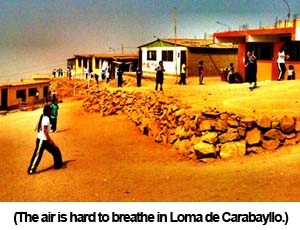 those initiatives, we also provide teacher training so that the schools improve their level of education and stay competitive nationally. Most of these schools charge about $25-40 a month, or roughly $1-$2 a day. This may not sound like a lot to us, but this is an enormous struggle for parents. They pay it because they know the alternative is that their child will be crammed in a classroom with 35 to 40 other students. Very little attention will be paid to their son or daughter, and they probably won’t progress even in the most basic of subjects: reading and writing.
those initiatives, we also provide teacher training so that the schools improve their level of education and stay competitive nationally. Most of these schools charge about $25-40 a month, or roughly $1-$2 a day. This may not sound like a lot to us, but this is an enormous struggle for parents. They pay it because they know the alternative is that their child will be crammed in a classroom with 35 to 40 other students. Very little attention will be paid to their son or daughter, and they probably won’t progress even in the most basic of subjects: reading and writing. ,000) students, they’ve run out of adequate bathroom space and finances to build more bathrooms, which also means the children will wait another year or two before they can pave the recess area to deal with the tremendous amount of dirt and dust kicked up in the air.
,000) students, they’ve run out of adequate bathroom space and finances to build more bathrooms, which also means the children will wait another year or two before they can pave the recess area to deal with the tremendous amount of dirt and dust kicked up in the air.